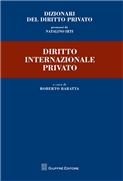Clearer Patrimonial Regimes for International Couples: Joint Conference of the European Commission and CNUE
On Monday 17 October 2011 the Council of the Notariats of the European Union (CNUE) is organising, jointly with the EU Commission, a conference in Brussels on the proposals for two regulations on property rights of “international” married couples and registered partnerships: “Clearer Patrimonial Regimes for International Couples”. A dedicated section of the CNUE website has been set up for the event, for further information and registration (there are still some places left to attend the conference). Here’s the programme (interpretation will be available in English, French, German, Italian, Polish, Romanian and Spanish):
9.30 – 9.40 Opening: Rudolf Kaindl, CNUE President
9.40 – 10.20 Keynote speeches:
- Viviane Reding, Vice-President of the European Commission
- Frank Molitor, President of the Luxembourg Chamber of Notaries
10.20 – 10.40 Proposals for Regulations on jurisdiction, applicable law and the recognition and enforcement of decisions in matters of matrimonial property regimes and regarding the property consequences of registered partnerships: Salla Saastamoinen, Head of Unit, DG Justice, European Commission
11.00 – 12.40 Panel discussion: Session 1 – The applicable law
Moderator: Prof. Katharina Boele-Woelki, University of Utrecht
Speakers:
- Prof. Paul Lagarde, University of Paris I “Panthéon Sorbonne”
- Prof. Brigitta Lurger, University of Graz
- Prof. Barbara Reinhartz, University of Amsterdam
- Franco Salerno Cardillo, Civil Law Notary in Palermo
- Alexandra Thein, Member of the European Parliament
- Richard Frimston, STEP, Solicitor and Notary Public in London
14.00 – 15-15 Panel discussion: Session 2 – The competent court
Moderator: Sjef van Erp, Maastricht University, Deputy-Justice, Court of Appeal, ‘s-Hertogenbosch
Speakers:
- Ulf Bergquist, Lawyer in Stockholm
- Prof. Patrick Wautelet, University of Liège
- Katarzyna Lis, Judge, Polish Ministry of Justice
15.15 – 16.30 Panel discussion: Session 3 – Recognition and enforcement in cross-border cases
Moderator: Pedro Carrión García de Parada, Chair of the CNUE’s Family Law Working Group
Speakers:
- Matthias Neumayr, Judge at the Austrian Supreme Court
- Prof. Philippe De Page, Université Libre de Bruxelles
- Prof. Dieter Martiny, European University Viadrina
- Edmond Jacoby, Civil Law Notary in Forbach
16.30 – 17.00 Information session – More information and services for European citizens
- The patrimonial property regimes website project, Harald Steinwendter, University of Graz
- The European Directory of Notaries, Thomas Diehn, Federal Council of the German Notariat
17.00 – 17.30 Closing speech: Paraskevi Michou, Director, DG Justice, European Commission.

